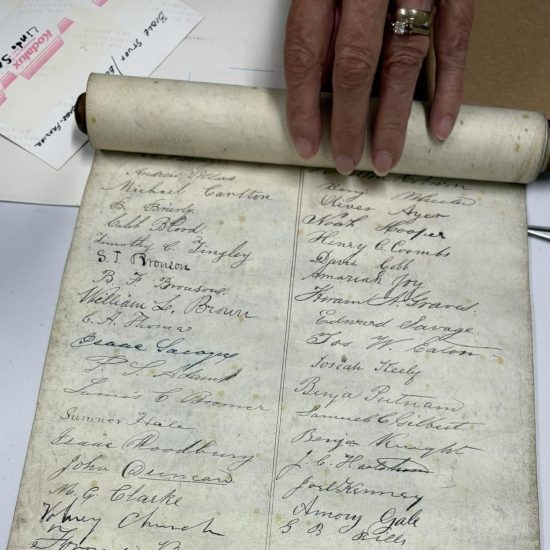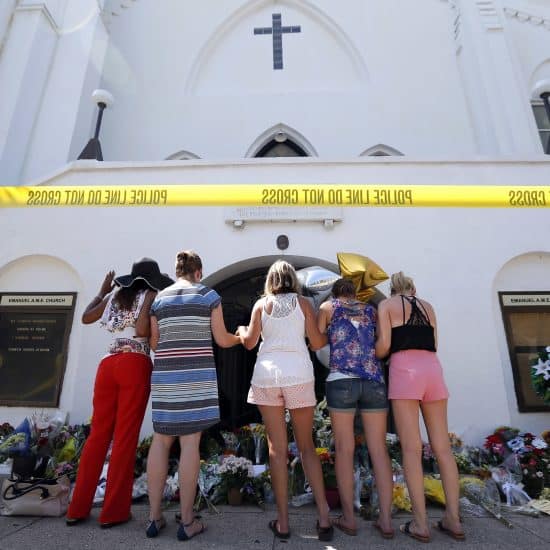The Southern Baptist Convention Annual Meeting and the Cooperative Baptist Fellowship Annual Gathering were held a little more than a week apart in June.
 Bill WebbThe SBC has been meeting since 1845 when Baptists split over the issue of appointing slave-holding missionaries, producing the SBC and what became the Northern Baptist Convention (today American Baptist Churches USA).
Bill WebbThe SBC has been meeting since 1845 when Baptists split over the issue of appointing slave-holding missionaries, producing the SBC and what became the Northern Baptist Convention (today American Baptist Churches USA).
Another breach resulted in the creation of CBF in 1991 following the Southern Baptist conflict over SBC control that came to a head in the 1980s.
In late June, CBF adherents met in Greensboro, N.C., to conduct annual business, hear from field personnel, listen to preaching and deal with issues of the day. They addressed issues through a pair of statements stemming from the recent massacre at a gay bar in Orlando, Fla. They also celebrated CBF’s 25th anniversary.
Earlier in June, Southern Baptists met in St. Louis, Mo., and considered budgets, missions, seminary education, preaching and issues, the latter primarily through the approval of various resolutions reflecting admonitions from a majority of participants called messengers. SBC resolutions are not binding on anyone — nor are CBF statements. They reflect the opinions and sentiments of the group of messengers at each particular convention.
SBCers and CBFers have much in common — like devotion to missions, evangelism and education — although they differ at points when describing and pursuing these goals.
One subject that came up frequently at both meetings was racism, a concern across the nation. It came up in plenary session preaching, in panel discussions, in breakout sessions and elsewhere during these national annual gatherings.
One hundred seventy-one years after coming down on the side of slavery, the SBC, meeting in the long shadow of nearby Ferguson, Mo., approved a strongly worded admonition (resolution) calling for Christians “to discontinue the display of the Confederate battle flag as a sign of solidarity of the whole Body of Christ, including our African-American brothers and sisters.”
Little more than 20 years earlier, the SBC issued an apology for the slavery practiced by some of their forefathers during the 19th century and before. More recently, messengers elected their first black convention president.
President Ronnie Floyd had urged the convention to make progress in its efforts toward racial reconciliation in the months leading up to the convention.
Floyd had met with Jerry Young, president of the traditionally black National Baptist Convention, USA, and had made various appearances with him before inviting Young to bring a message in St. Louis. In his message, Young identified racism as a “sin problem” and challenged churches to be salt and light and to deal with it.
Floyd convened a national panel discussion on racial unity during the convention to press home the matter.
During the CBF gathering, references were made in larger sessions to the matter of dealing with racism, but this issue and various others was discussed more in smaller breakout session groups.
Rather than votes and broad admonitions, the CBF approach has been to focus on specific, practical approaches and actions to assist individuals and churches in increasing cross-cultural understanding, breaking down barriers, establishing relationships and achieving reconciliation.
Each of these national Baptist bodies approached the matter differently.
It is a good thing that diverse Baptists and others are doing what they can — in their distinctive ways — to address racism. It is encouraging to see leaders and followers making the effort. God help us — we are long overdue.
Pray that all of this translates into active effort, motivation and opportunities for each of us to address this destructive issue in our own churches, workplaces, neighborhoods and communities.
God is still waiting — and undoubtedly still watching us.
Bill Webb is editor of Word & Way.






